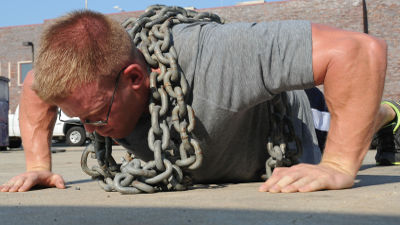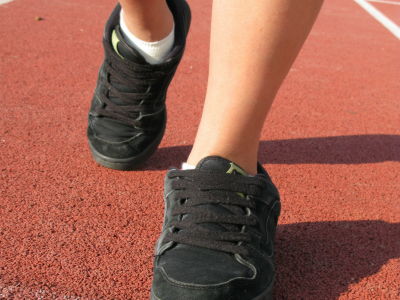Research results show that 'electrolytes' contained in sports drinks have no meaning

Electrolytes in the blood play an important role in regulating the osmotic pressure of cells and influencing the function of muscle cells and nerve cells. However, regarding electrolytes contained in sports drinks, a joint research team of several American medical research institutes such as Stanford University School of Medicine has announced research results that are 'almost meaningless.'
Effect of Sodium Supplements and Climate on Dysnatremia Duri ...: Clinical Journal of Sport Medicine
Electrolyte supplements don't prevent illness in athletes | News Center | Stanford Medicine
http://med.stanford.edu/news/all-news/2020/02/electrolyte-supplements-dont-prevent-illness-in-athletes.html
Workout hacks: Ultramarathon study reveals what actually boosts performance
https://www.inverse.com/mind-body/why-athletes-should-skip-electrolyte-supplements-human-performance-study
The research team focused on an ultramarathon , which runs a much longer distance than the usual 42.195km. The research team conducted an experiment with a total of 266 participants in five competitions held in South America, Mongolia, and Namibia, even in an ultramarathon competition called ' Racing the Planet ,' which traverses a distance of 250 km in six days. rice field. Racing the Planet is considered one of the toughest racing series in the world, and its experience is said to 'exceed the limits of body and mind.'
The following three types of experiments were conducted.
・ Before the start of the race, a questionnaire survey will be asked about the schedule of the 'hydration strategy' and 'how faithfully the hydration strategy could be executed' at 50 miles (about 80 km).
・ Weight measurement at the starting point and 50 miles
・ Blood test at 50 miles
'Hydration strategy' refers to a plan of 'what kind of drink to bring' and 'when to drink' in a tough race. According to the answers to the questionnaire, some people took salt tablets every hour, while others brought in water-soluble sports drinks. However, all subjects had a common strategy of 'taking some electrolyte supplement.'
Electrolytes are substances that conduct electricity when dissolved in water, and the main ones are sodium ions, potassium ions, calcium ions, magnesium ions, etc. Many sports drinks advertise that they contain electrolytes, as they regulate the osmotic pressure of cells and affect the work of muscle and nerve cells.
What is an electrolyte (ion)? | Otsuka Pharmaceutical
https://www.otsuka.co.jp/nutraceutical/about/rehydration/water/electrolytes/
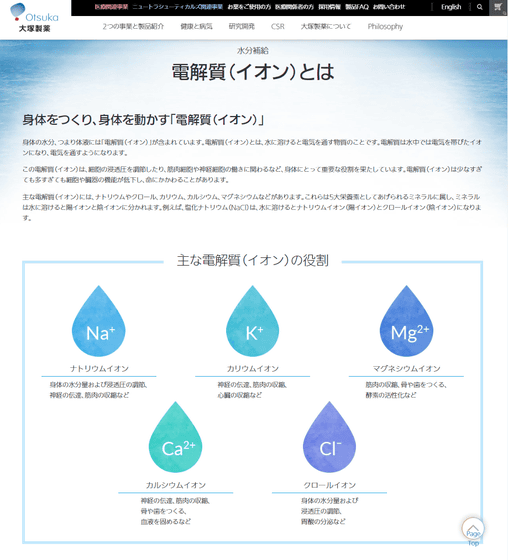
The research team focused on sodium, which is especially important among electrolytes. Analysis of the subjects' blood revealed that 41 had an imbalance of sodium in their blood at 50 miles, 11 had hyponatremia with too little sodium in their blood, and 30 had sodium in their blood. It turned out that it was too much and caused dehydration. As a result of analyzing this case and hydration strategy, it was shown that the amount, type, method, etc. of the electrolyte supplement taken during the race had nothing to do with the sodium level in the blood. Therefore, Dr. Lippmann commented, 'Sports drinks only make sense in hydration and calorie replenishment.'
Dr. Grant Lippmann, the lead author of this study, points out that hyponatremia that occurs during exercise is 'more dangerous than dehydration.' While there are few deaths from dehydration that most athletes are worried about, he said there have been as many as 14 deaths from exercise hyponatremia since 1985.
The problem with electrolyte supplements, as Dr. Lipman points out, is that the concentration of electrolytes in electrolyte supplements is lower than the concentration of electrolytes in blood. In other words, if you continue to take electrolyte supplements, the concentration of electrolytes in your blood will decrease. Therefore, it may be counterproductive to gulp down a sports drink thinking, 'Because it contains electrolytes, you have to take a lot.' 'If you're feeling nausea, dizziness, or tired but not thirsty, your sodium levels may be too low,' said Dr. Lippmann.
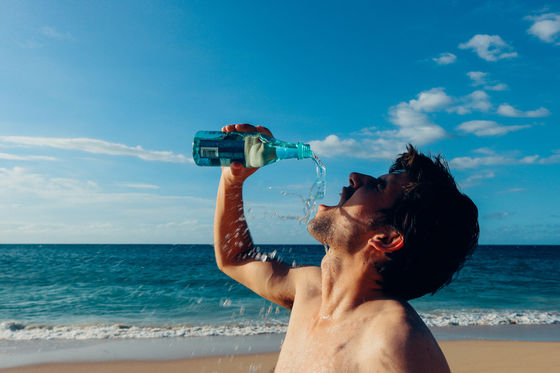
In addition, you don't have to worry too much about electrolytes when jogging or cycling at normal levels. Hydration expert Professor Stabras Cavolus of the Department of Health at Arizona State University explained that you only need to worry about electrolytes if you are exercising at high intensity or working long hours in the heat, such as sports drinks. He said he didn't have to take electrolytes and that a normal diet would provide a sufficient amount of electrolytes.
Both Dr. Lippmann and Professor Stavros have expressed the view that at the athlete's level, overdose of water rather causes a decline in performance. That's why Professor Stavros commented, 'You have to learn for yourself how much water you need to drink.'
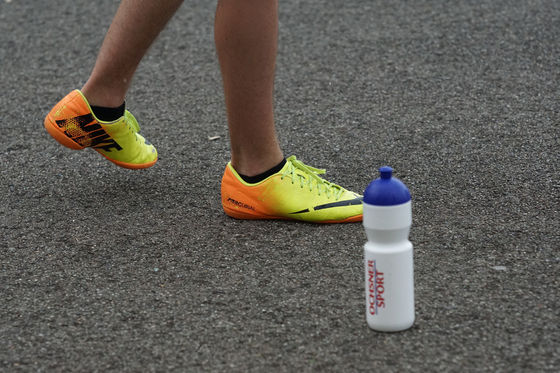
In this experiment, it is thought that 'temperature' had a great influence on the sodium level in the blood. It is known that 88% (36 people) of the subjects who lost their sodium balance participated in the 'hot race'. Therefore, the research team states that temperature is the biggest predictor of sodium imbalance.
Related Posts:
in Science, Posted by darkhorse_log





